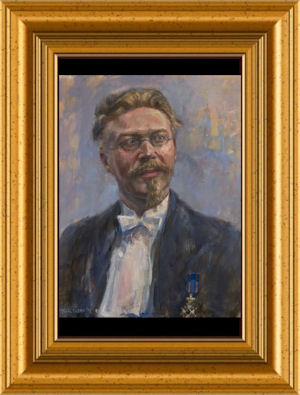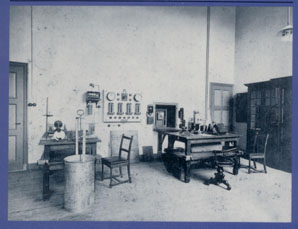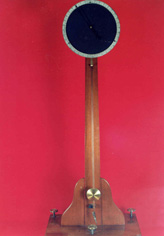Gerard Heymans (1857-1930)

Gerard Heymans was born in 1857 in the Frisian town of Ferwerd, where his father was an important member of the local council. He went to high school in Leeuwarden en then studied Law and Philosophy in Leiden.
In 1890 he completed his doctorate and then travelled to Freiburg im Breisgau to study and received a doctorate on Philosophy in 1881. From 1890 to 1927 Heymans was professor of Philosophy and Psychology in Groningen. He was a supporter of empirical methodology and continually introduced experiments where possible.
In 1892 he established the psychology lab in Groningen, the first one in the Netherlands. Heymans conducted experiments into general psychology, specifically optical illusion, psychic block, telepathy and into the minimums of differentiation during the mixing of contrast colours.

Heymans is less well known for his general psychology study, but is famous for what he called his ‘special psychology’: the study of human differences or characterology. He used questionnaires to collect data for his theories about heredity, personality, and gender-based psychological differences. This led to the famous temper theory according to Heymans’ “character cube”.
His research into metaphysics also made him famous. Heymans developed a fundamental metaphysical theory, the psychic monism, which he presented as a scientific hypothesis. This theory suggested that all real processes are psychic processes which, to a large extent, manifest themselves physically.
In 1909, during his tenure as rector magnificus, Heymans held a famous speech on “the future century of psychology”, telling of a far-off future in which a matured psychological science could solve many of humankinds’ problems.
Film en audio-interview on Gerard Heymans
In a short film (Dutch and English) and an audio interview (in Dutch), made on the occasion of the 400-year anniversary of the University of Groningen, prof. dr. Douwe Draaisma talks about the founding father of psychology in The Netherlands: Gerard Heymans.
| Last modified: | 12 September 2023 12.55 p.m. |


